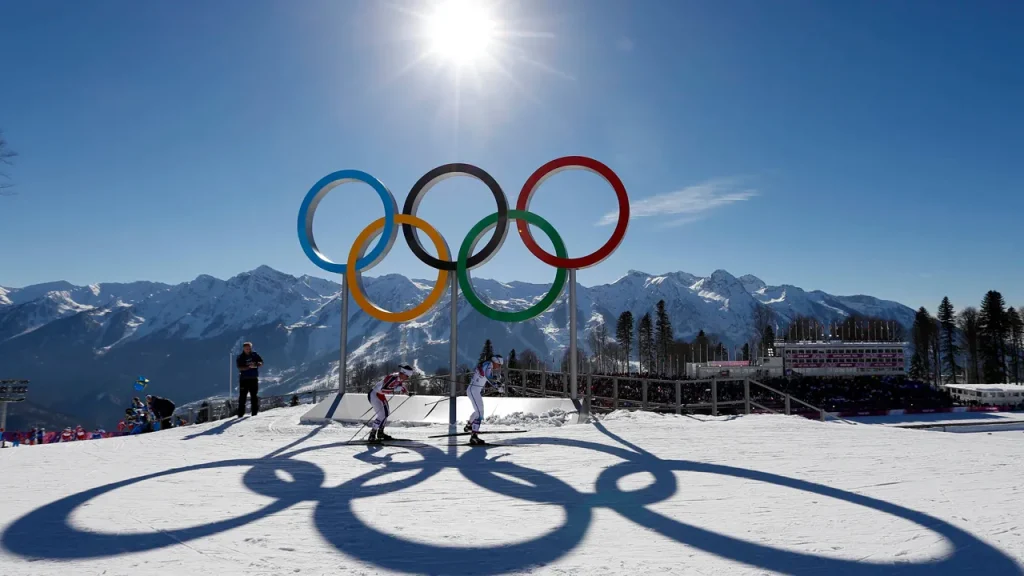The Call for Olympic Truce: Seeking Peace Amid Global Division
As the world looks toward the 2026 Milan-Cortina Winter Olympics, the United Nations has made a renewed plea for nations to observe the Olympic Truce, urging a halt to conflicts during the Games. This call comes nearly four years after Russia violated the previous Olympic Truce by invading Ukraine just days after the 2022 Beijing Winter Games concluded. At Wednesday’s U.N. General Assembly meeting, diplomats, the International Olympic Committee, and sports representatives welcomed the resolution’s adoption with applause, highlighting the potential for the Olympics to serve as “a tool to promote peace, dialogue, tolerance and reconciliation” during a time of increasing global tensions.
Giovanni Malagò, president of the organizing committee for the upcoming Winter Olympics, introduced the resolution with a poignant message: “At a time of growing discord and conflict, sport and the Olympic Games can provide a beacon of hope, an alternative to rivalry and division.” The resolution itself draws on the ancient Greek tradition of “Ekecheiria,” or Olympic Truce, which historically encouraged a peaceful environment and ensured safe passage for athletes participating in the Games. This tradition, dating back millennia, was designed to “mobilize the youth of the world to the cause of peace” – a mission that resonates perhaps even more strongly in today’s divided world.
International Olympic Committee President Kirsty Coventry addressed the assembly just before the resolution’s adoption, emphasizing that in our world where “conflict and division continue to cause untold suffering,” the Olympic Games offer “a rare space where people meet not as adversaries but as fellow human beings.” She characterized the Olympic Truce as “a call to set aside what divides us and rather to focus on what unites us.” However, Coventry was clear that athletes alone cannot achieve this lofty goal. She urged all countries to maintain separation between sport and politics, ensuring that athletes are not denied visas for politically motivated reasons, stressing that competitors “must not be judged on where they come from, but rather on their sporting merits.”
Coventry’s plea against politically motivated visa denials comes in the wake of a recent controversy when Indonesia denied visas to Israel’s national gymnastics team for the World Gymnastics Championships in Jakarta. The IOC responded firmly, recommending that no international competitions take place in Indonesia and ending discussions about the country potentially hosting future Olympic Games. This incident highlights the ongoing challenge of keeping politics separate from international sporting events, even as the Olympic movement strives to transcend political divisions and promote global unity through athletic competition.
The 2026 Winter Olympics, scheduled to run from February 4 to February 26 in Cortina and Milan, will test the world’s commitment to the Olympic Truce. The recent history of the truce’s observance has been marred by violations, with Russia having broken it three times in just 14 years: fighting a war with Georgia over South Ossetia during the 2008 Beijing Summer Olympics, launching a military takeover to annex Ukraine’s Crimean Peninsula after the 2014 Sochi Winter Olympics, and most recently, invading Ukraine shortly after the 2022 Beijing Winter Games. These violations resulted in significant consequences for Russian athletes, including being barred from competing under their national flag at the Paris Olympics in 2024, though they were permitted to participate as neutral athletes.
As the international community prepares for another Olympic celebration, the U.N.’s call for an Olympic Truce represents more than just a diplomatic formality—it embodies hope for a brief respite from global conflicts and a reminder of sport’s unique power to unite across divides. While history suggests the challenges of maintaining such a truce in practice, the unanimous adoption of this resolution demonstrates a collective aspiration for the Olympic ideals of peace and international cooperation to prevail, even if temporarily. The true test will come as the Games approach, revealing whether nations can indeed set aside their differences in the spirit of athletic competition and human fellowship that the Olympics are meant to exemplify.


